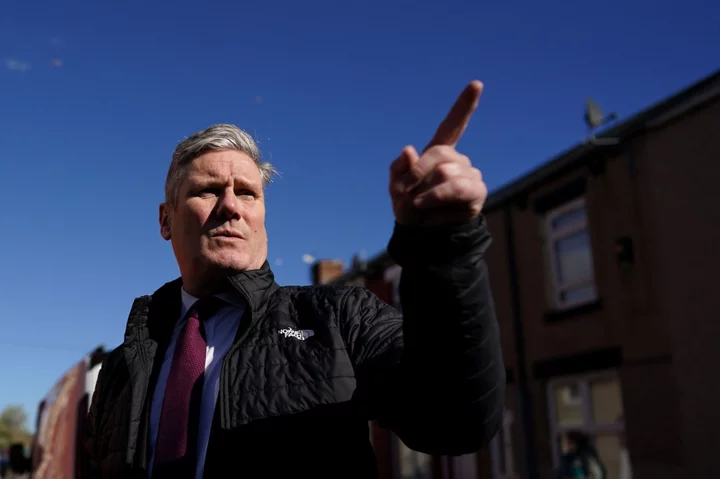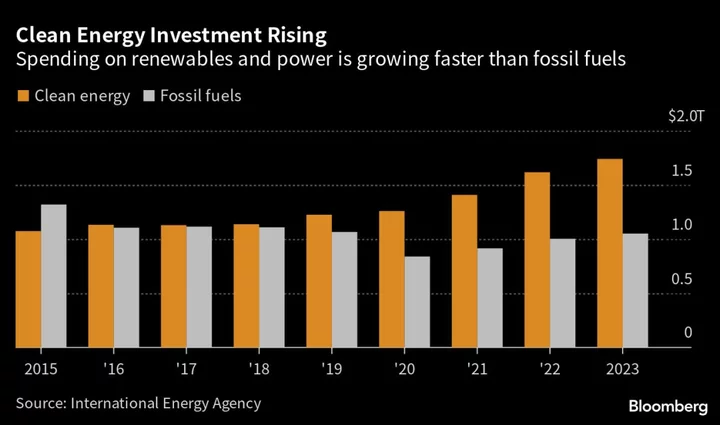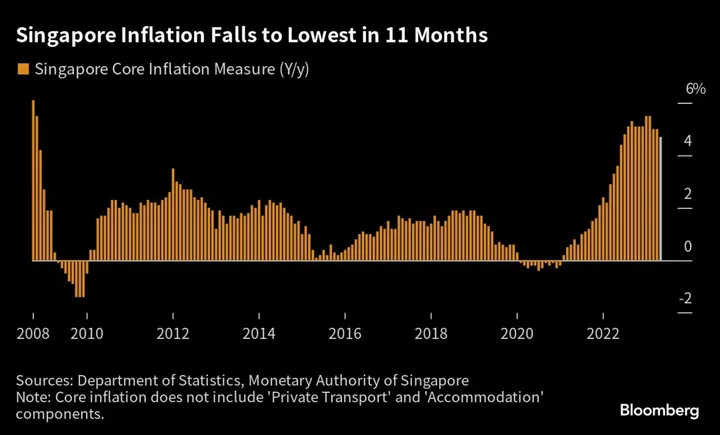UK opposition leader Keir Starmer vowed to break the “class ceiling” stopping people from poorer backgrounds progressing in education and at work, promising speaking lessons in state schools to boost life chances.
Communication skills are essential to “remove barriers to opportunity and break the pernicious link between where you start in life and where you finish,” the Labour Party leader told BBC Radio 4 on Thursday. “Far too many children and young people are limited by the earnings of their parents rather than their own potential and talent.”
Labour holds a double-digit lead over Rishi Sunak’s Conservative Party in polls, with a general election expected next year. Starmer hopes he can lead Labour back to power for the first time since 2010 by setting long-term goals to transform Britain’s fortunes. Breaking down the barriers to opportunity is one.
But he faces limits put on his ambitions by the dire state of the UK economy. That risks disappointing those in his party calling for specific policies, including free school meals for all children aged 11 and under, which he again declined to commit to on Thursday. Money is a “big factor” in Labour’s planning, he said. “We will inherit a broken economy after 13 years of failure, broken public services, and we have to have clear rules about what we can afford.”
Read more: Starmer Says Labour to End ‘Dangerous’ Hospital Waits If Elected
In a keynote speech in Kent, southeast England, on Thursday, Starmer will point to “a pervasive idea, a barrier in our collective minds, that narrows our ambitions for working-class children and says, sometimes with subtlety, sometimes to your face — this isn’t for you.”
This is “about a fundamental lack of respect,” he will say, according to an emailed statement from his office. “A snobbery that too often extends into adulthood, raising its ugly head when it comes to inequalities at work -– in pay, promotions, opportunities to progress.”
The Labour leader has long underlined his own working-class background and the fact he was the first in his family to go to university. He hopes to draw a stark comparison with Sunak, a multimillionaire who has faced accusations that he fails to understand the lives of those struggling to make ends meet.
Under his plans to boost opportunity, Starmer will pledge to:
- Ensure 500,000 more children hit early learning targets by 2030
- Modernize the curriculum to better prepare people for work and life
- End the recruitment and retention “crisis”in schools
- Boost access to vocational training and adult retraining
- Planning reform to boost housebuilding
Speaking clearly will be an important part of the national curriculum in schools, Starmer told the BBC, just as it is in private schools. He said the ability to articulate your thoughts fluently was the key to doing well in a job interview, communicating with businesses and getting on in life.
But he is under pressure to explain how he plans to end ongoing industrial action in schools, which has seen thousands of pupils forced to stay home over several days this year as teaching unions demand better pay. “I want to resolve the strikes, as do the teachers,” Starmer said. “That means the government has to get round the negotiating table.”
He refused to commit to specific pay levels for teachers, saying it depends on the economic situation. All Labour’s policies are “fully costed,” he said.
Starmer said equipping young people with the skills for the future is essential in an era of growing artificial intelligence and new technologies. There should be a “greater emphasis on creativity, on resilience, on emotional intelligence and the ability to adapt — on all the attributes, to put it starkly, that make us human, that distinguish us from learning machines,” he will say in his speech.
His other “missions” are making streets safe, reforming the National Health Service, making the UK a clean energy “superpower,” and securing the highest sustained growth among Group of Seven nations.









